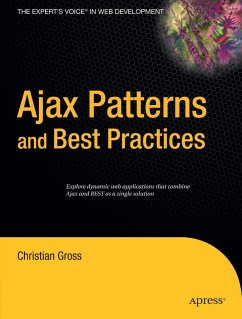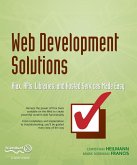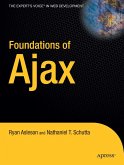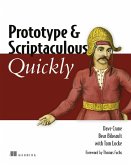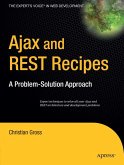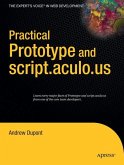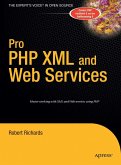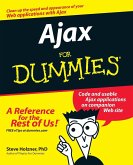Ajax is taking us into the next generation of web applications. Ajax has broken the client-server barrier by decoupling the client from the server, but an Ajax application still needs a server to extract content from. The most effective use of Ajax and the server requires an understanding of REST, an architectural style used to define Web services.
Ajax Patterns and Best Practices explores dynamic web applications that combine Ajax and REST as a single solution. A major advantage of REST is that, like Ajax, it can be used with today's existing technologies.
This is an ideal book whether or not you have already created an Ajax application. Because the book outlines various patterns and best practices, you can quickly check and verify that you're building an efficient Ajax application.
Inside the book, the patterns will answer the following questions:
What is Ajax, and REST, and why do you even care? And if I should care what are some examples of websites that make effective use of Ajax and REST? What are the absolute basics of Ajax and REST and what parts of those basics should I use? How should deal with large amounts of data? Should I cache the data? Should I get the data piece fed to me? (Patterns: Cache Controller, and Infinite Data) People keep telling me that sessions and cookies are bad? Are they bad? What should I do? And while I think about how about generating content for other devices? (Permutations pattern) I want to fix the back-button problem of the HTML browser. (State Navigation pattern) What is the best way to create a mashup? (REST Based Model View Controller pattern) My page has so many links managed by JavaScript, and I am losing control, help me make this more organized! (Decoupled Navigation pattern) I understand that HTTP means I send data to the server, how about the server sending me some data without asking for it? (Persistent Communications pattern) My server side code looks like a mess with tags and code pieces everywhere. How can I organize and make my HTML page behave like a SOA client and use REST based web services? (Content chunking pattern)
Ajax Patterns and Best Practices explores dynamic web applications that combine Ajax and REST as a single solution. A major advantage of REST is that, like Ajax, it can be used with today's existing technologies.
This is an ideal book whether or not you have already created an Ajax application. Because the book outlines various patterns and best practices, you can quickly check and verify that you're building an efficient Ajax application.
Inside the book, the patterns will answer the following questions:
What is Ajax, and REST, and why do you even care? And if I should care what are some examples of websites that make effective use of Ajax and REST? What are the absolute basics of Ajax and REST and what parts of those basics should I use? How should deal with large amounts of data? Should I cache the data? Should I get the data piece fed to me? (Patterns: Cache Controller, and Infinite Data) People keep telling me that sessions and cookies are bad? Are they bad? What should I do? And while I think about how about generating content for other devices? (Permutations pattern) I want to fix the back-button problem of the HTML browser. (State Navigation pattern) What is the best way to create a mashup? (REST Based Model View Controller pattern) My page has so many links managed by JavaScript, and I am losing control, help me make this more organized! (Decoupled Navigation pattern) I understand that HTTP means I send data to the server, how about the server sending me some data without asking for it? (Persistent Communications pattern) My server side code looks like a mess with tags and code pieces everywhere. How can I organize and make my HTML page behave like a SOA client and use REST based web services? (Content chunking pattern)

